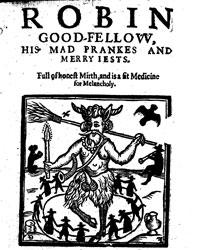Just because it’s summertime doesn’t mean research at UC Merced comes to a halt.
Just the opposite.
This summer, professors and students in the School of Social Sciences, Humanities and Arts are conducting a variety of research projects here and around the world.
Cognitive science Professor Teenie Matlock and postdoctoral researcher Timothy Gann are spearheading a large-scale analysis examining how various stakeholders, including journalists, scientists and politicians, describe and debate issues around climate change.
This project entails carefully evaluating literal and non-literal language, and has excellent potential to lead to a better understanding of how people talk about and think about climate change, and what the implications are for policy-making.
Matlock and Gann also recently founded the Center for Climate Change Communication in the Sierra Nevada Research Institute. They are exploring funding and organizing a series of workshops involving local stakeholders, including Yosemite National Park officials and other UC faculty members.
One of the main goals of this interdisciplinary center is to promote and improve research on communication about environmental issues.
Across the Atlantic Ocean, history Professor Susan Amussen is in London for two months conducting research in the British Library, the National Archives and the London Guildhall Library. She's working on an essay titled “Cuckolds in Early Modern Popular Culture.” A cuckold is the husband of an adulterous wife.
 Amussen is reading plays, jest books and court cases and thinking about how these different forms of popular culture talk about the cuckold and respond to him.
Amussen is reading plays, jest books and court cases and thinking about how these different forms of popular culture talk about the cuckold and respond to him.
The early 17th century (Shakespeare's time) is full of jokes about cuckolds, and the horns they wear, Amussen said. It’s clear the husband whose wife is unfaithful is the butt of those jokes, and Shakespeare’s comedies are full of them. Those jokes about cuckolds and horns often don’t seem very funny to most readers, and they're left wondering why it is the husband’s fault that his wife is unfaithful. Amussen said it's that gap – the piece readers don’t get – that opens up interesting historical questions.
“The real luxury of the summer is the extended time for research, and the relative lack of interruptions, which allows me to see new connections between different sources,” Amussen said.
Anthropology Professor Robin DeLugan is in Santo Domingo, Dominican Republic, conducting ethnographic research on new public sites of memory that bring attention to the infamous government-led 1937 "Parsley Massacre" in which an estimated 17,000 Haitians who were living and working in the Dominican Republic near the border with Haiti were brutally killed over a period of days.
DeLugan is exploring how the new memory work by civil society actors is connecting the 1937 violence to historical and ongoing exclusion of Haitians and Haitian-Dominicans. She's developing this project as a comparative case study to her ongoing research in El Salvador, where she continues to study how new commemorations about the 1932 state-led "Matanza" (massacre) of indigenous people is linked to the ongoing exclusion of indigenous people and to new efforts to include this historically marginalized population.



